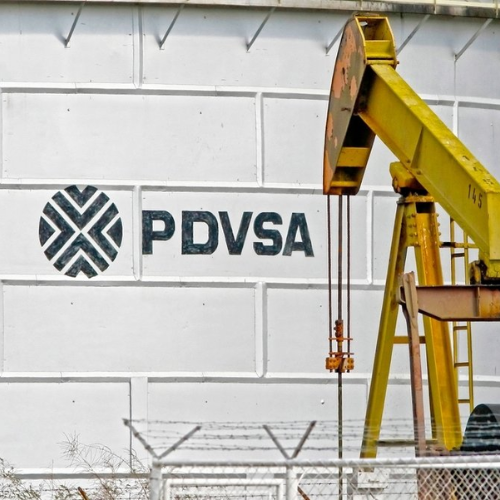In a major decision, the United States has informed Italian energy company Eni that it can no longer receive payments in oil for its gas production in Venezuela. The payments were previously made by Venezuela’s state-run oil company, PDVSA. This move is part of a broader crackdown by the US on Venezuela’s oil exports, affecting multiple foreign companies that had agreements with PDVSA.
The US government has notified Eni and other companies, including Spain’s Repsol, France’s Maurel Prom, India’s Reliance Industries, and US-based Global Oil Terminals, that their special permissions to export Venezuelan oil and oil products were being revoked. This decision is expected to have a significant impact on how these companies operate in Venezuela.
Eni Responds to the US Decision
Following the US announcement, Eni confirmed on Sunday that it had been officially notified. The company stated that it remains committed to working with US authorities to explore other possible solutions. According to Eni, its primary goal is to ensure that the gas supplies essential to the Venezuelan population can still be paid for in a way that complies with international laws.
“Eni always operates in full compliance with the international sanctions framework,” the company emphasized in its official statement. The Italian company, which has been involved in Venezuelan energy projects for years, is now looking for ways to continue its operations despite the restrictions imposed by Washington.
Eni was not the only company affected by this move. Other firms that had received special authorizations from the US to deal with Venezuelan oil include Repsol, Maurel Prom, Reliance Industries, and Global Oil Terminals. These companies are now facing similar challenges as they navigate the new restrictions set by the US government.
Venezuela’s Response to the Ban
The Venezuelan government quickly responded to the US decision. On social media, Venezuela’s Vice President Delcy Rodriguez confirmed that the government had been officially informed about the cancellation of these authorizations. However, she downplayed the impact of the decision, stating that Venezuela was fully prepared for this situation.
“We are ready to continue fulfilling our agreements with these companies,” she wrote. Rodriguez further stated that foreign companies operating in Venezuela do not need permission from any other government to continue their business with PDVSA. According to her, Venezuela remains a reliable partner and will continue to honor its contracts.
The move by the US comes after the recent imposition of secondary sanctions on buyers of Venezuelan oil and gas. These sanctions have made it increasingly difficult for Venezuela to sell its oil on the global market. Many foreign companies had already started reducing their imports of Venezuelan oil in response to the growing restrictions imposed by Washington.
Meanwhile, Venezuelan President Nicolas Maduro has criticized these sanctions, calling them an “economic war.” Despite the tightening US grip on Venezuela’s oil sector, the government insists that it will keep honoring its commitments despite external pressures.


